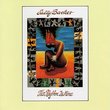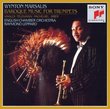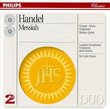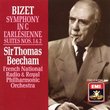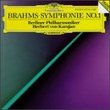| All Artists: Brahms, Gilels, Ormandy, Phl Title: Piano Concerto 2 / Haydn Variations Members Wishing: 0 Total Copies: 1 Label: RCA Release Date: 4/5/1991 Genre: Classical Styles: Forms & Genres, Concertos, Instruments, Keyboard Number of Discs: 1 SwapaCD Credits: 1 UPC: 090266053629 |
Search - Brahms, Gilels, Ormandy :: Piano Concerto 2 / Haydn Variations
 | Brahms, Gilels, Ormandy Piano Concerto 2 / Haydn Variations Genre: Classical
![header=[] body=[This CD is available to be requested as disc only.]](/images/attributes/disc.png?v=430e6b0a) ![header=[] body=[This CD is available to be requested with the disc and back insert.]](/images/attributes/disc_back.png?v=430e6b0a) ![header=[] body=[This CD is unavailable to be requested with the disc and front insert at this time.]](/images/attributes/greyed_disc_front.png?v=430e6b0a) ![header=[] body=[This CD is unavailable to be requested with the disc, front and back inserts at this time.]](/images/attributes/greyed_disc_front_back.png?v=430e6b0a) |
CD DetailsSimilar CDs
Similarly Requested CDs
|
CD ReviewsGilels' earlier version is a gem RaleighObserver | Eastern USA | 06/24/2005 (5 out of 5 stars) "This recording dates back to Gilels' visit to the US in 1958. It was eclipsed in RCA's catalog by Sviatoslav Richter's recording of the piece in 1960 with the same orchestra under Eric Leinsdorf (Reiner was supposed to conduct but was ill). Richter's recording got huge publicity and critical praise. Gilels had a much lower public profile than Richter: he was not as dramatic a figure, not as controversial, nor was he touted as being a genius. Gilels' recording was rereleased on RCA's low-priced Victrola label in 1964 and kicked around in RCA's catalog for some time with little notice. It's a shame; it is a fine performance. Gilels and Reiner make a fine team. More a continuous conversation between piano and orchestra than the traditional showcase for the soloist, this piece requires a conductor who is more than an accompanist and a soloist who is willing to collaborate on a shared vision. Gilels and Reiner work hand-in-glove, taking a muscular, dynamic approach to the piece which emphasizes its classical form. Tempi are appropriate if a bit on the brisk side. The taut sound Reiner created with the Chicago Symphony is the perfect complement to Gilels' clear and transparent pianism. Gilels keeps the lines crystal-clear, the structures evident, the emotions present but always held in balance, his sound big and still transparent. The third movement is a gem, a marvel of dynamic shading and light, lyrical touch. The clarity of sound and transparency of textures gives the performance a chamber-music feel, perfectly appropriate in a piece many commentators have likened more to chamber music than a traditional concerto. The Chicago Symphony plays well, with commitment and passion as they always did for Reiner. RCA's sound in its 1950's early stereo recordings from Chicago was excellent for its time, and stands up very well even today. I've had both this performance and the Richter/Leinsdorf in my collection since the late 1960's in some form or other. While Richter does astonishing things with the first two movements, it is the Gilels' performance I keep coming back to. To draw the distinction between the two performances broadly, Richter is more the romantic and Gilels is more the classicist -- and since both strands are there in Brahms, both performances work well in their different ways. Gilels/Reiner is as close to a "classic" interpretation as I can find: balanced, clear, communicative and not prone to excesses in any direction. They are a more equal partnership than Richter and Leinsdorf; as much as Leinsdorf is a fine accompanist in that recording, he is an accompanist, not a real co-creator, and the performance shows it. And, for what it's worth, I think the Chicago Symphony plays better for Reiner. I have not heard Gilels' later recording of this piece with Jochum so I cannot compare them. There is a feeling of "rightness" about this performance, and knowing what I do of Jochum's conducting style, I would anticipate that performance to be more weighty but might not necessarily have that same chamber-music feel. Gilels/Reiner will stand up to rehearing after rehearing, year after year, and continue to show new marvels. It is a shame that the this version is out of print and the only easily available ones are so expensive." Listen to the fireworks Paul S. | Oakland, California | 07/16/2007 (5 out of 5 stars) "The differences of tempo between this CD and Gilels' performance with Jochum are huge. With Reiner, the first and third movements are each over 2 minutes faster! The other movements are similarly paced. On the plus side, this helps gives this performance its tremendous energy, and provides a dazzling show of virtuosity. Gilels stays on top of the notes, and even manages to infuse his playing with nuance and sensitivity as he zooms along. On the minus side, the performers' heroic efforts to avoid glibness at this rocket pace are largely but not entirely successful. There's just a bit more depth in several other performances, notably Gilels' own with Jochum. You can get even more power at a slightly reduced pace with Serkin. Another minus is RCA's second-rate sound. It's OK but lacks the clarity, cleanness and presence of DG's recording with Jochum. There are so many CDs of the Second Concerto around--after all, it's simply the greatest work of its kind--that I can't say I've heard half of them; but I've heard just about all the big names and quite a few of the lesser ones. This is the fastest I've heard, and one of the best. I'd make the Gilels/Jochum or Serkin/Szell my first choice, but tastes differ. This CD is altogether special and belongs in the collection of anyone who is a devotee of this wonderful music. It seems to be available only used, so get it while you can. " A great but overlooked reading Santa Fe Listener | Santa Fe, NM USA | 09/21/2005 (5 out of 5 stars) "I have to concur with the above review in every respect. Since I can't add anything, I only hope more people discover this, the best Brahms 2nd by Gilels and bidding fair to be the best by anyone."
|

 Track Listings (14) - Disc #1
Track Listings (14) - Disc #1